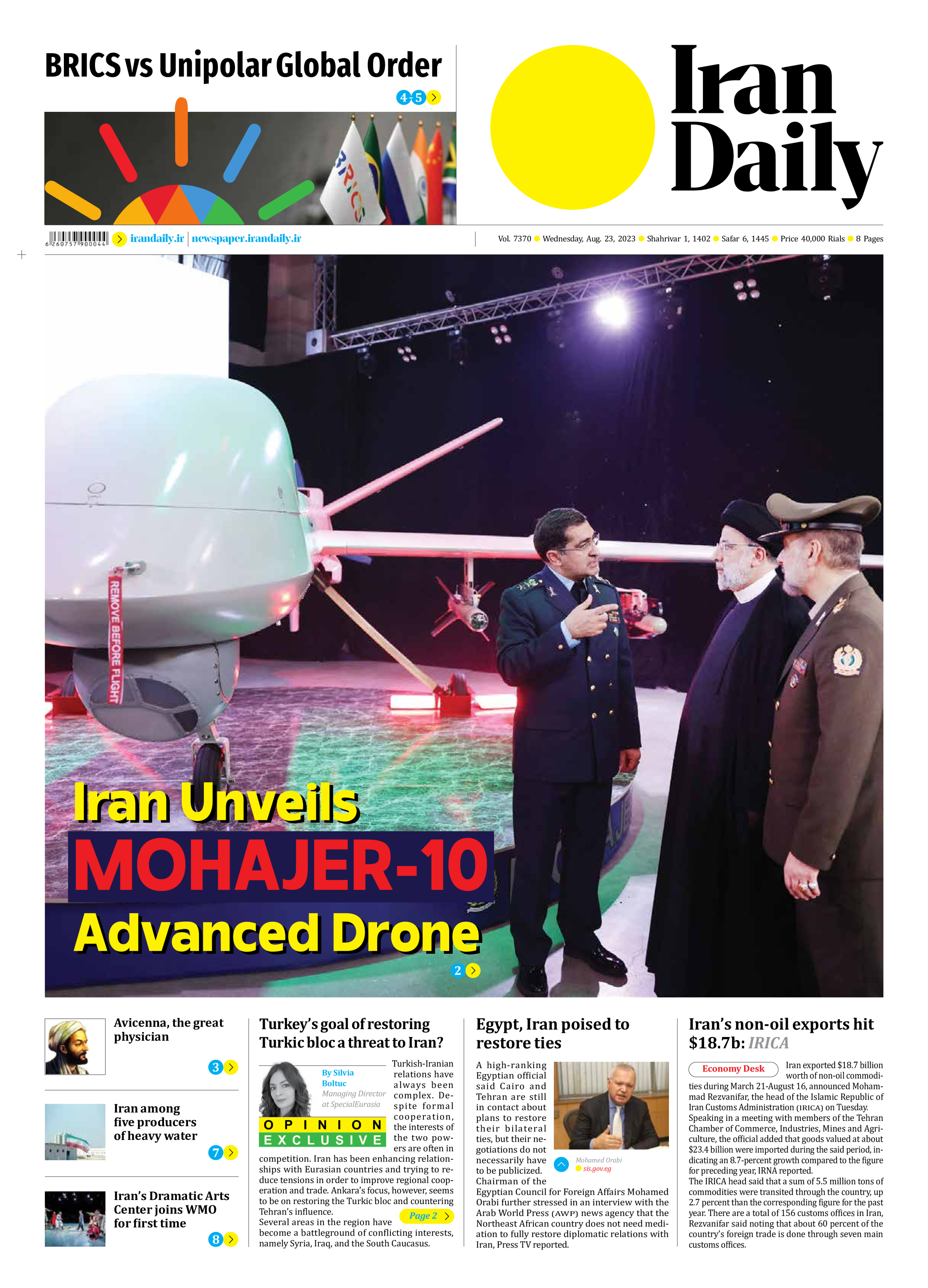
Turkey’s goal of restoring Turkic bloc a threat to Iran?
By Silvia Boltuc
Managing Director at SpecialEurasia
Turkish-Iranian relations have always been complex. Despite formal cooperation, the interests of the two powers are often in competition. Iran has been enhancing relationships with Eurasian countries and trying to reduce tensions in order to improve regional cooperation and trade. Ankara’s focus, however, seems to be on restoring the Turkic bloc and countering Tehran’s influence.
Several areas in the region have become a battleground of conflicting interests, namely Syria, Iraq, and the South Caucasus.
Moreover, both Iran and Turkey have the potential to establish their territory as regional transit and energy hubs. In the past, Iran planned to supply gas to Europe via Turkey, but the Turkish government was limiting their delivery capacity. Ankara perceives Iran’s vast oil and gas reservoir as a threat to its regional role.
Besides economic and strategic interests, the two states have important ideological differences. The Ottoman-Safavid conflict and the divide between Shia and Sunni played a role in these distinctions. In 1514, Selim I imposed an economic land and sea blockade on the Iranian silk trade and persuaded leading Sunni religious leaders to issue fatwas against his Shia opponents, condemning them as heretics. This set the stage for a long-lasting Sunni-Shia divide between the Ottoman and the Safavid Empire. During his march through Ottoman territory and into Iran, Selim massacred up to forty thousand of his own empire’s Shia believers.
Nowadays, things have not changed significantly. In 2016, when the operation to liberate Mosul began (since 2014 the city had become the headquarters of the self-proclaimed caliphate of the Islamic State in northern Iraq) Ankara reaffirmed the Sunni identity of the city, triggering a clash with the Iraqi authorities, which feared a demographic change in Iraq. It is important to underline that the creation of the Shia crescent in the Middle East has been a disadvantage for Turkey and its foreign strategy.
While Ankara and Tehran have forged different cooperation agreements on trade and regional security on a diplomatic level, Turkey’s policy of opposing Iran remains.
Azerbaijan has become one of the primary tools Ankara uses to threaten Iran’s stability. While other Turkic-speaking countries, such as Kazakhstan (which is also part of the Organisation of Turkic States), have many times stressed the need to enhance cooperation with Iran, Baku is exploiting the northeastern Iranian Turkish minority to destabilise the country.
On August 12, 2023, the South Azerbaijan Culture Centre in Baku held a conference on “Promotion and problems of South Azerbaijan culture” sponsored by the APA GROUP and the World Union of Young Turkish Writers. Moreover, the Cultural Centre of South Azerbaijan will organise the “Cultural Days of South Azerbaijan” in Izmir, Turkey, from September 23 to 30, 2023.
By ‘South Azerbaijan,’ Baku and Ankara mean to refer to the northeastern provinces of Iran inhabited by a large Turkic-speaking community. By using this expression, they underline that such a region should be part of Azerbaijan and separate from the Islamic Republic of Iran.
Although the Turkic-speaking peoples within Iran have, like any other minority, their own language and culture alongside the Persian one. The support that this secessionist group is receiving is a violation of international law on territorial sovereignty. Conferences like the previously-mentioned one on the culture of ‘South Azerbaijan’ can be considered part of the soft power used by Azerbaijan and Turkey to destabilise the northeastern Iranian provinces. Nevertheless, Ankara cannot openly support the secession of the Turkic-speaking populations of northeastern Iran. Otherwise, in equal measure, it would have to recognise Nagorno-Karabakh/Artsakh to the Armenians.
The fact that during the 2020 Nagorno-Karabakh Conflict, Iran, for one thing, agreed with the hand-off of the disputed territories to Baku despite its long-lasting relations with Armenia and, for another, proposed a mediation format to stop hostilities proved that Tehran tried multiple times to mediate and stabilise the Southern Caucasus.
The recent Azerbaijani attempt to connect Nakhichevan to Azerbaijan through the Armenian Syunik region will serve Ankara’s goal of connecting Turkey to Azerbaijan, the Caspian Sea, and the Central Asian republics. For Iran, this would mean being cut out from energy corridors and losing its land connection to Russia and Armenia, a door through which Tehran can access the Eurasian Economic Union markets.
Although in the past Ankara and Tehran have found a convergence of policies regarding opposition to an independent Kurdistan and support for creating an independent Palestinian state, the recent Azerbaijan-Turkey-Israel axis represents a threat to Iran, particularly now that Azeri President Ilham Aliyev announced on April 29, 2023, that the Turkish military company Baykar will establish a Bayraktar centre in Azerbaijan. Aliyev stated that Selcuk Bayraktar, the Director of the Baykar company, presented him with a model of the company’s new product, Kizil Elma, its first jet-powered unmanned combat aerial vehicle (UCAV), which is more lethal than the famed TB2. Aliyev expressed his hope that shortly, Kizil Elma will also be in the sky over Azerbaijan. The new UCAV is a low-observable vehicle and could represent a threat to the Islamic Republic of Iran. This, together with Azerbaijan’s expansionist attitude towards Armenia and northeastern Iran, leads to the destabilisation of the South Caucasus. In addition, Turkey pushed the development of the Azerbaijan-KRG relationship. Notably, Tel Aviv and Erbil also have strong ties.
To conclude, although Iran and Turkey have the potential to work together. However, the possibility of their collaboration appears distant at present. This is imputed to Turkey’s international policy pursuits in the Caucasus, Middle East, and Central Asia, along with Ankara’s backing of Baku and Tel Aviv, which represents a danger to Tehran.







